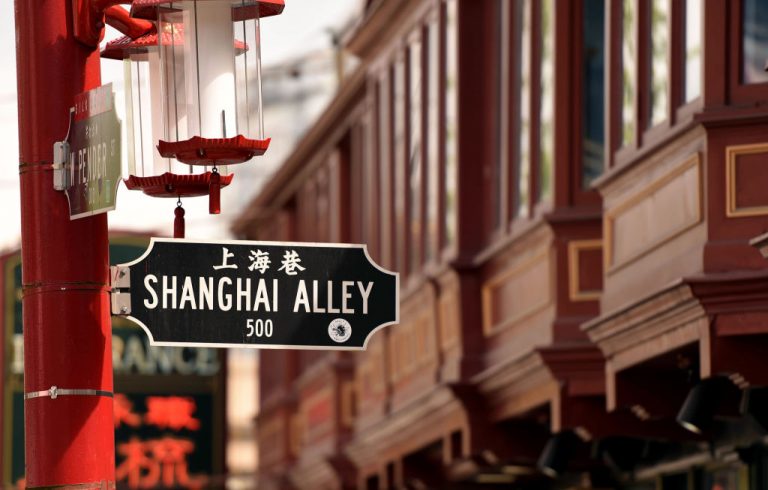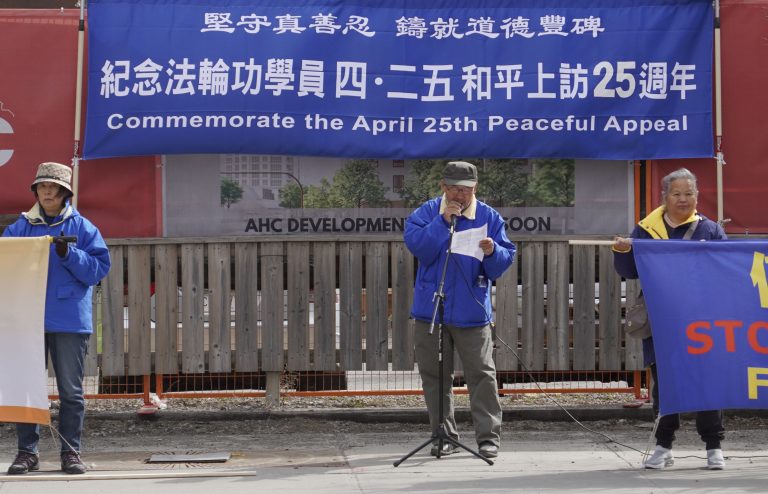A new case study unveiled in a major money laundering inquiry in the Canadian province of British Columbia revealed an instance of a Chinese national purchasing $32 million in real estate in the Vancouver area despite declaring to customs officials that his annual income was barely more than $40,000 CAD.
The 165-page study is part of the Cullen Commission, spearheaded by BC Supreme Court Associate Chief Justice Austin Cullen, announced in May of 2019 to provide the public with a certain level of examination into the trend of organized crime money laundering in Canada’s westernmost province.
The Case Study, which is heavily redacted, says that in 2016, Canada Border Services Agency began an admissibility investigation into an individual cloaked as “Person A,” who immediately filed for leave and judicial review in the Federal Court of Canada. The document says that in March of this year, five years later, the Federal Court “issued a confidentiality and sealing order over the file.”
The documents were produced by the Cullen Commission nonetheless because they were public filings and obtained before the sealing order was issued.
The Study says Person A “was steadily employed from 1983 to 1995. From the year 1998, Person A showed steady annual income peaking at the equivalent of $40,615. Person B was employed as a clerk with undisclosed income. Together they were able to amass the equivalent of CAD 1.26 million to come to Canada.”
Success
You are now signed up for our newsletter
Success
Check your email to complete sign up
The documents include a FINTRAC disclosure from UBS Bank (Canada) “arising from a series of deposits into an account held by Person A’s mother,” in 2011. Person A held power of attorney over their mother. The series of 10 suspicious transactions originated from four entities based in Hong Kong and amounted to $2.1 million USD and $5 million CAD.
A second FINTRAC disclosure shows a second series of ten deposits originating from “a different four entities” based in Hong Kong in 2010 deposited in Person A and other family member’s accounts, amounting to more than $14 million USD.
The inquiry found that starting in 2007, Person A and their family members made a total of four high value real estate purchases. The first transaction in 2007 was a property worth at least $2 million CAD. The next was a 2012 purchase worth at least $14 million, a 2016 purchase worth at least $15 million, and a second 2016 purchase worth $1 million.
The buyer for the $14 million property was registered as living at the address in the original 2007 purchase and declared her occupation as a “student.”
Additional documents show that Person A’s mother was the principal of a Bahamas-based corporation defined as “Company A” that received more than $33 million CAD, $75 million USD, 250,000 Euros, and $18 million HKD between 2006 and and 2014 through its UBS Bank (Canada) account.
A number of the USD and CAD payments were issued from the Bank of China Hong Kong. The receiver claimed they were the result of a property sale in mainland China.
The Commission queried 11 Canadian financial institutions for records related to the Hong Kong depositors between 2009 and 2020, finding a total of almost $167 million CAD brought into the country, Business in Vancouver reports.
“Overall, the commission found limited open source information about these depositors, despite the large amounts of cash flowing into B.C. One operated in an obscure building belonging to an auto repair shop.”
The article continues, “Depositor Hing Wah China + HK Renminbi Exchange Co., which made the most deposits to B.C. accounts, was found to have shareholders named Fang Jinghua and Hing Wah. Those two were accused of operating an underground bank in a Chinese court dispute but were determined innocent of the allegation. Fang, who owns a number of Hong Kong businesses with his family, has also faced charges of assault and criminal damage.”
The report found Fang’s family was co-shareholder with a man named Fong Siu Lok on several jewelry shops.
BIV summarized the data as, “Lok has a somewhat higher public profile than other Fang Family members. He became head of the Hong Kong Lion’s Club in 2017, and in 2011 and 2012 was one of Hong Kong’s delegates to the Chinese People’s Political Consultative Congress (‘CPPCC’) of Fengkai, a region of Guangdong just north of Hong Kong.”
The CPPCC is a United Front Work Department entity, the arm of the Chinese Communist Party tasked with co-opting and corrupting overseas businesses, governments, institutions, and individuals to import the Party’s culture and operational methodology.
Lok was also tied in the report to a woman named Szeto Yuk Lin, described as a “gaming tycoon widely reported to have close connections to organized crime, particularly Wan Kwok-koi, a.k.a. Broken Tooth Koi, a leader of the 14K triad.”
Canadian mainstream journalist Sam Cooper documents the exploits of Broken Tooth Koi and the 14K Triad in Macau, Hong Kong, and British Columbia extensively in his book Wilful Blindness: How a Network of Narcos, Tycoons and CCP Agents Infiltrated the West.
Cooper’s book is based on his years of investigative reporting and chronicles an elaborate scheme employed by the CCP’s Triad, another UFWD arm, to launder the proceeds of a lucrative fentanyl and heroin business through BC’s government-run casinos under the direct auspices of Beijing and a tendency by Canadian officials at all levels of government and law enforcement to look the other way.


















